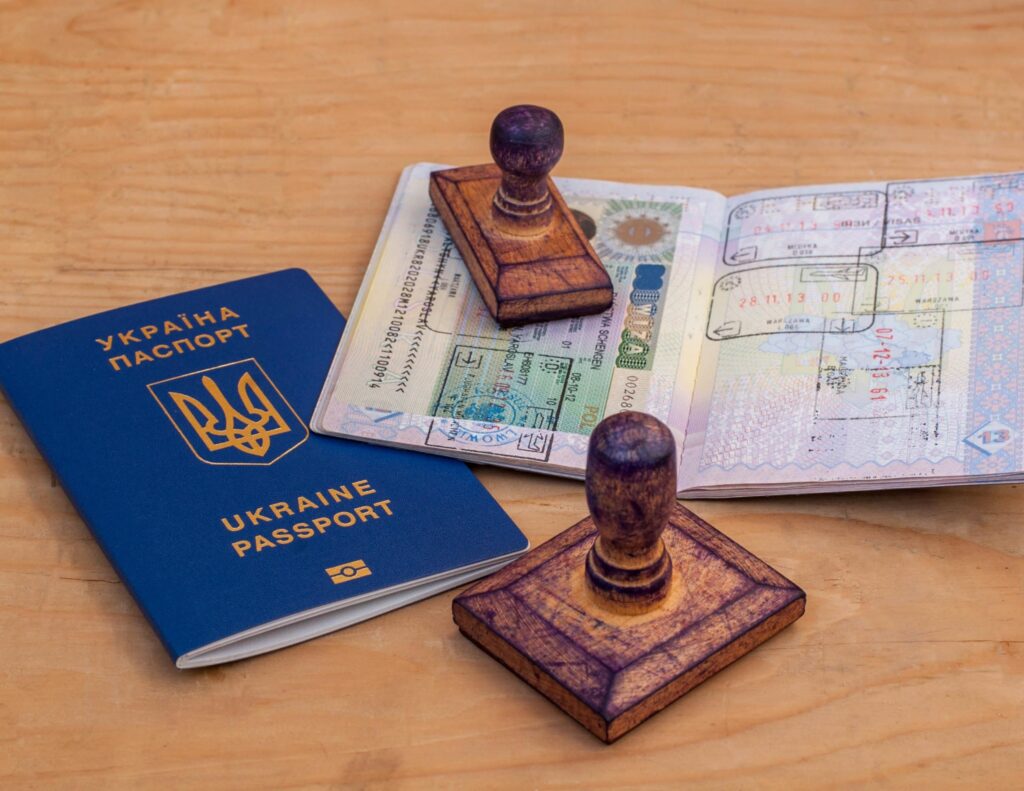
Simplified Paths and Programs for Hassle-Free Admissions
Many students around the world aspire to study abroad. The benefits of foreign education include exposure to many cultures, global intellectual viewpoints, and chances for personal development, to name a few. However, given the intricacy of visa applications, academic standards, and financial planning, the process of applying, being accepted, and ultimately relocating overseas might seem intimidating.
Fortunately, students who wish to study abroad without too much trouble have a number of streamlined options and pathways. This book will give you simple and stress-free solutions to make your dream of studying abroad a reality, regardless of your preferences for a full degree program, a short-term study experience, or a program that reduces the difficulties involved with studying abroad.
Foundation Programs and Pathway Courses
Enrolling in route courses or foundation programs is one of the easiest methods to study abroad. Students who do not fulfill the direct entrance standards for the undergraduate or graduate degree programs they wish to pursue are the target audience for these programs. By enhancing students’ academic abilities, language competence, and general readiness for university-level study, foundation courses aid in closing the gap.
What Are Foundation Programs?
Universities and colleges provide foundation programs, which are preparatory courses designed to assist students develop the language and intellectual skills required for their selected degree programs. These one-year programs are frequently seen as an alternate gateway to undergraduate or graduate education.
For instance, a foundation program can assist you in meeting the entrance requirements if your academic performance falls just short of the university’s needed threshold or if you don’t meet certain topic prerequisites. These programs also emphasize improving your English language skills, which is essential for academic achievement in a setting where English is the primary language.
Why Choose Foundation Programs?
• Lower Entry Requirements: Students with less-than-perfect academic records might enroll in foundation programs because they often have lower admission standards than degree programs.
• Language Support:These programs frequently offer language classes to students whose first language is not English, which aid in enhancing academic communication abilities.
• Smooth Transition:Foundation programs help students become used to the academic demands of their chosen field by facilitating a seamless transition from high school or an undergraduate degree to university life.
• Guaranteed Progression:After completing the foundation course successfully, several colleges guarantee advancement to a full degree program, boosting students’ confidence for their future academic endeavors.
Popular Universities Offering Foundation Programs:
• University of Sydney (Australia)
• University College London (UK)
• University of California (USA)
• University of Toronto (Canada)
Applying Through Education Consultants
Using education consultants is one of the easiest and most convenient ways to study abroad. These experts specialize in helping students with every step of studying overseas, from selecting the best program to assisting with applications, visas, and other arrangements.
How Education Consultants Simplify the Process:
• Program and University Selection:Based on your academic background, professional objectives, and financial constraints, education advisers assist you in selecting the best program and university.
• Application Guidance: They offer help with application forms, required paperwork, and advice on crafting a compelling statement of purpose (SOP) or personal statement, which is crucial for getting accepted into the school of your choice.
• Visa Application Assistance: Education experts are knowledgeable about the various nations’ visa application procedures. To improve your chances of getting your visa approved, they make sure you have all the essential paperwork, adhere to deadlines, and follow the right procedures.
• Scholarship and Financial Aid Support: Numerous education advisors can assist you in locating financial assistance possibilities to reduce the cost of studying overseas because they have access to scholarship databases.
Why Choose Education Consultants?
• Expert Guidance: They have in-depth knowledge of the admissions process, making them an invaluable resource for students who may be unfamiliar with the procedure.
• Time-Saving: Consultants save you time by managing deadlines, completing paperwork, and helping you avoid common mistakes that could delay or affect your application.
• Stress Reduction: The entire process of studying abroad can be stressful, but with the assistance of a professional consultant, much of the burden is taken off your shoulders.
Top Education Consultancy Firms:
• IDP Education (Global)
• The Chopras (India)
• Edwise International (India)
Short-Term Courses or Diplomas
Short-term courses or diploma programs are a great choice if you want to study abroad but aren’t ready to commit to a full degree program. These courses give students the chance to acquire new abilities, credentials, or information in a particular field and usually last a few months to a year.
Why Short-Term Programs Are Easy to Apply For:
• Flexible Entry Requirements: High academic scores are not as important for short-term courses and diplomas, which frequently have lower entrance requirements. They are therefore a fantastic choice for pupils with little academic background.
• Quick Processing Time: Instead of making you wait a lengthy time to begin your studies, these programs typically have a faster application and approval process.
• Less Expensive: With these programs, you can begin your studies sooner rather than later because the application and approval processes are typically faster.
• Less Commitment: A short-term course gives you the freedom to explore your interest in a subject without committing to a long-term program if you’re not convinced about pursuing one.
Examples of Popular Short-Term Programs:
• Language Courses: Study English, Spanish, or French at universities or language schools abroad.
• Summer Schools: Many prestigious universities offer short-term summer school programs in fields like business, arts, science, and technology.
• Diploma Programs: Subjects like digital marketing, project management, and business analytics are popular for diploma programs abroad.
Popular Destinations for Short-Term Courses:
• United Kingdom (Short-term courses in business, arts, and humanities)
• United States (Language schools, certificates, and summer programs)
• Canada (Short diploma programs in business and technology)
• Australia (Vocational education and training courses)
Study Abroad via Exchange Programs
Exchange programs allow students to study abroad for a semester or a year as part of a university agreement with another institution in a different country. These programs are often easier to join because they are facilitated by the home university, which usually has partnerships with international universities.
How Exchange Programs Work:
• Partnerships Between Universities: Your home university collaborates with international institutions to allow students to study abroad while still earning credit toward their degree.
• Limited Application Requirements: Exchange programs typically have fewer entry barriers compared to direct university admissions, as the program is usually for students enrolled at participating universities.
• No Need for Visa Applications (for Some Countries): In some cases, students can study abroad on an exchange program without needing to apply for a student visa, depending on the length and nature of the program.
• Affordable: Exchange programs are often more affordable because students typically pay their regular tuition fees to their home university, and the host university may provide accommodation and meals at a discounted rate.
Why Choose Exchange Programs?
• Lower Financial Cost: As exchange students usually pay home university fees, the overall cost can be lower compared to applying independently to study abroad.
• Support and Assistance: Since exchange programs are usually managed by the home university, students have a reliable support system, including guidance on travel, accommodation, and cultural adjustment.
• No Need to Apply to Foreign Universities: Since the exchange program is facilitated by the home university, you don’t need to go through the process of applying directly to foreign institutions.
Popular Exchange Program Destinations:
• United States (Exchange programs with universities like Harvard, MIT, etc.)
• Germany (Many exchange opportunities for engineering and business students)
• France (Exchange programs with prestigious universities like Sorbonne University)
• Australia (Popular exchange programs with universities like the University of Sydney)
Simplified Visa Application Process
For students looking for the easiest way to study abroad, a simplified visa process can make all the difference. Some countries offer easier visa application processes for international students. Here are a few examples:
• Canada: Particularly for students starting full-time programs, Canada provides a reasonably simple student visa application process. If you fulfill all the conditions, you have a good probability of being approved because the process is well-documented. • Australia: Many students are granted a visa with little issues since the Australian student visa application process is simplified. Applicants can adhere to a list of visa requirements provided by the government.
• United Kingdom: For students wishing to enroll in full-time studies at recognized universities, the UK offers a streamlined visa application process. If all the paperwork is in line, getting a Tier 4 student visa is not too difficult.
Conclusion
With a number of streamlined pathways and programs that make it easier for students to seek foreign education, studying abroad is now more accessible than ever. There are several ways to fulfill your desire of studying abroad, like enrolling in an exchange program, taking a short-term course, hiring an education adviser, or selecting a foundation program. You can simplify the application process, save time, and start a rewarding educational path that will lead to new opportunities, perspectives, and talents by taking these options into consideration.



